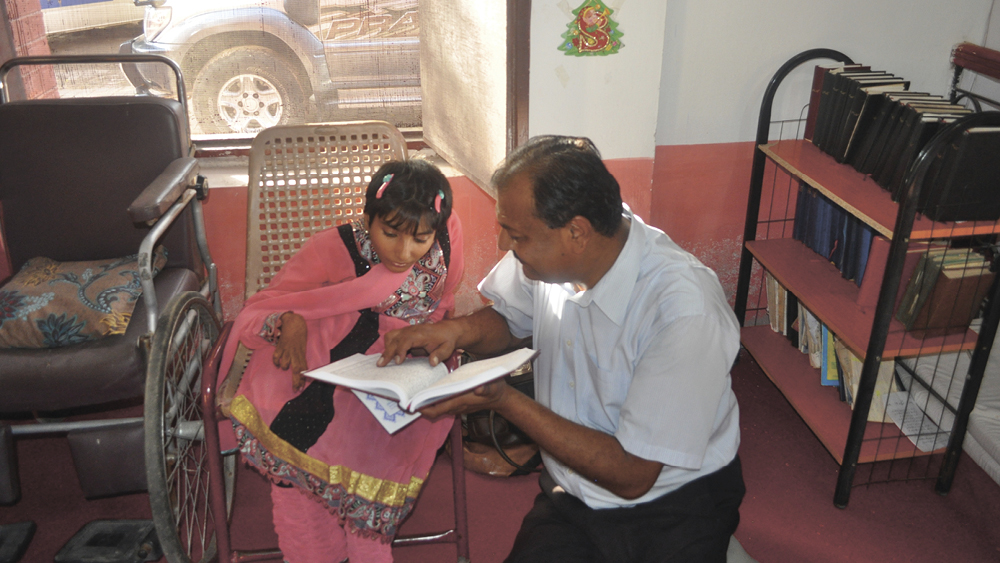This International Women’s Day, Eternity takes a look at the lives of women all around the world.
Kiran lives in Khyber Pakhtunkhwa (KPK) Province in Peshawar in northwest Pakistan, on the border of Afghanistan. For Australians, this is a place on the ‘do not travel’ list set by the government. For Kiran, this is home.
Northwest Pakistan has had a violent, chaotic history. Kiran says Peshawar, the capital city of KPK, is “fundamentalist” – “the men don’t allow their ladies to go outside without ‘Purdah’ (covering all their skin and concealing their form) and without being accompanied by a male family member.” Christian families, says Kiran, have retained a similar mentality towards women.
It has made Kiran’s new role as a teacher of women’s literacy classes quite difficult. She says there are many hurdles for women to attend her classes, not the least of which is getting the permission of their husbands, fathers or sons.
Kiran is a teacher of Bible Society literacy classes, organised by her local church. She has always wanted to be a teacher, but was only able to complete high school. While that is a rare accomplishment for a woman in her area – almost 80 per cent of rural Pakistani women are illiterate – she is not qualified to teach in a government school. But recognising her passion, Kiran’s pastor arranged teacher training for her and asked her to run an adult literacy class this year.
“I requested many ladies to join the classes, but many refused due to the hurdle of their men. I gathered 20 ladies with much effort.
“I am thankful to the Lord that my class was very regular [in attendance] and I taught with enthusiasm. I am glad to share that 18 women graduated and are able to read the Bible.”
Bible Society has been supporting church-based literary classes in Christian communities for 30 years. Class materials are based on the Bible, and upon graduation, women get a Bible of their own. In Pakistan this year, it aims to enrol 8000 women in classes across the country but mainly in rural and city slum areas.
“Culturally, mothers are pivotal in Pakistan, responsible for passing on their knowledge to their children,” says Aslam, a Bible Society supervisor of the literacy programme in Pakistan. “The generational impact of literacy is unstoppable.”
Teaching a woman to read not only provides a stronger financial foundation for herself and her family, but it also enables her to read the Bible for herself.
Eliza has been attending literacy classes organised by her church in the southern Punjab in central Pakistan. She was unable to attend school because of a disability that left her in a wheel-chair. The literacy classes were held in her home, to make it easier for Eliza to attend. When she graduated, Eliza received a New Testament in her native Urdu language.
“I am thankful to the Lord that now I can read my [Bible] … I will read the Bible daily throughout my life. I know that I cannot do any work, but this is enough for me: to read the Bible and learn. I know that God’s plan for me to learn is to read his word, to make me a good follower of Jesus.”
Back in KPK Province, just this month one of Kiran’s students read the Bible in the church pulpit during their Sunday service. “I was so proud,” she says.
“I have observed a positive change among my students. They speak confidently and behave well. And I am glad to share that seven of the women joined a Bible study group in my area.”
Make a Donation
This International Women’s Day, you can give Pakistani women a light no one can put out. $41 teaches one Pakistani woman to read and opens up Scripture for her family.



